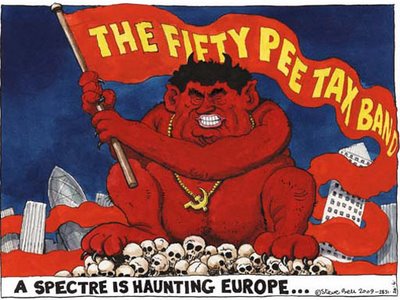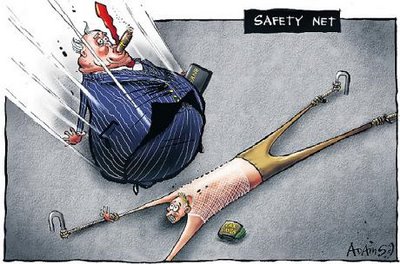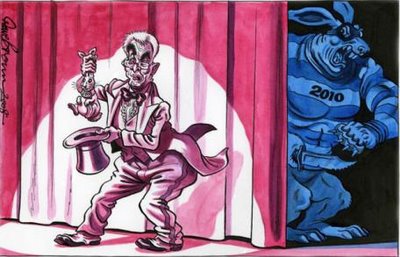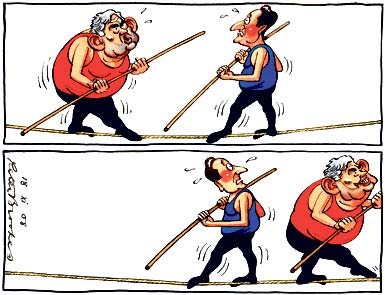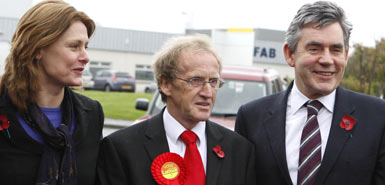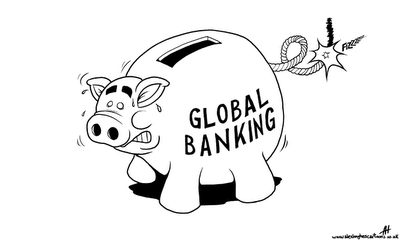The real "we are all in this together".
It was the one moment of levity in what was otherwise a tour de force in the completely expected, the responses also seemingly written weeks in advance and not updated to take account of any late changes. George Osborne, who courtesy of Steve Bell I now can't look at without seeing buttocks on his nose, did the now standard New Tory act of claiming this meant Labour had completely abandoned the aspirational, while the Daily Mail has somehow construed a pre-budget which hits more or less everyone in some way or another as class war.
If the Mail's right, then this is class war on all of the classes rather just the middle or the upper. While the additional increase in national insurance will affect anyone earning above £20,000 (the average wage before the recession being somewhere around the £24,000 mark) the freeze in public sector pay across the board, which will in effect be a cut in real terms, spreads the pain across the board. George Osborne ought to be pleased: Darling, with the tax on bank bonuses and freeze on the inheritance tax threshold is ensuring that we truly "are all in this together", something you doubt his own plans will accurately reflect.
Like when some papers and the Tories cried that the Queen's speech was nothing but pure politics, as if this was something new and terrible, Darling's effort today could be condemned in similar terms. Depending on your view, it could be cowardly, as it puts off almost all the big decisions until after the election; political, in that as it's more than likely that the Tories will then be the ones to pick up the pieces; and also the right thing to do, as cutting now in the way that the Tories propose, when the recession is not over and everyone is just assuming that growth will return in this fourth quarter, will just damage the recovery even further. It can also be all three of these things, which is the view I take.
In short, what was billed as being significant was nothing of the sort, or wasn't presented by almost anyone in those terms. The real significance was in the back of the documents which accompanied the speech as always (PDF), showing that the deep cuts are coming in the years to come, just unannounced, although everyone already assumes the worst. The battle is now over who can be the most optimistic in the public whilst being a pessimist behind closed doors, and the government has to hope that the gap in the polls can still be made up by portraying the Tories as the ruthless cutters of old. One suspects however that even with the Tory lead being reduced of late, the victory is still the Tories' to lose rather win.
Labels: Alistar Darling, Conservatives, economics, New Labour, politics, pre-budget report, recession
